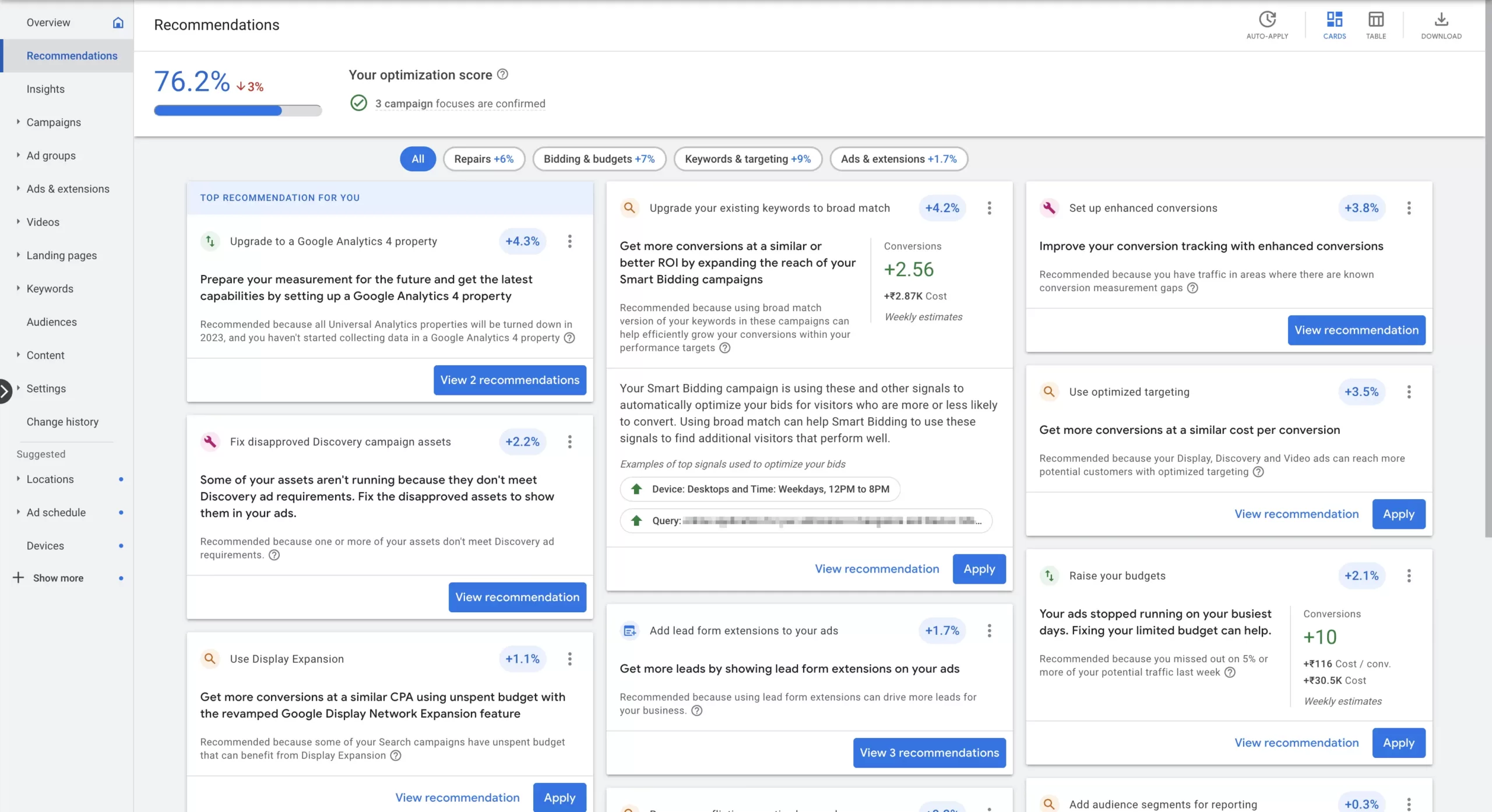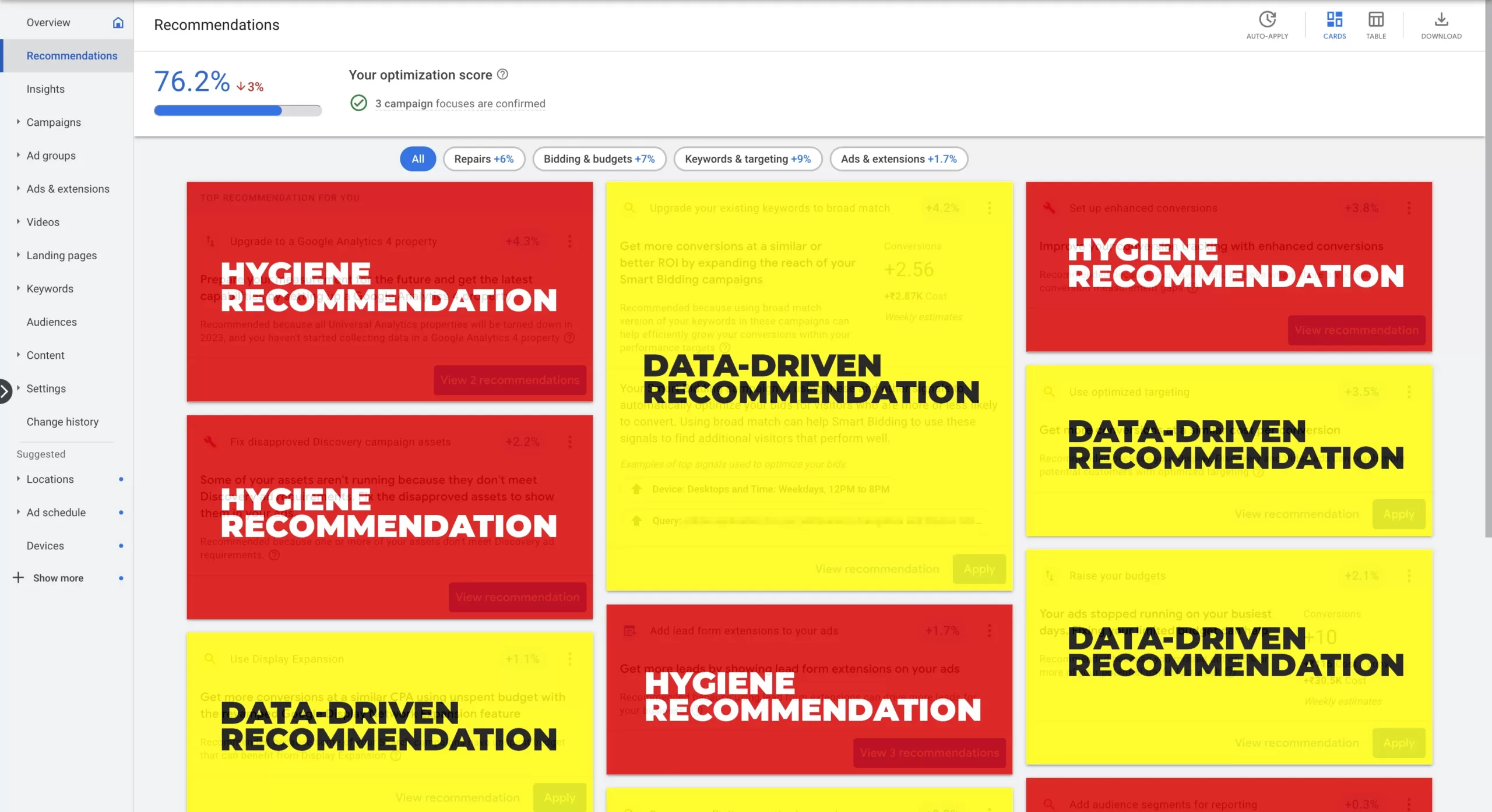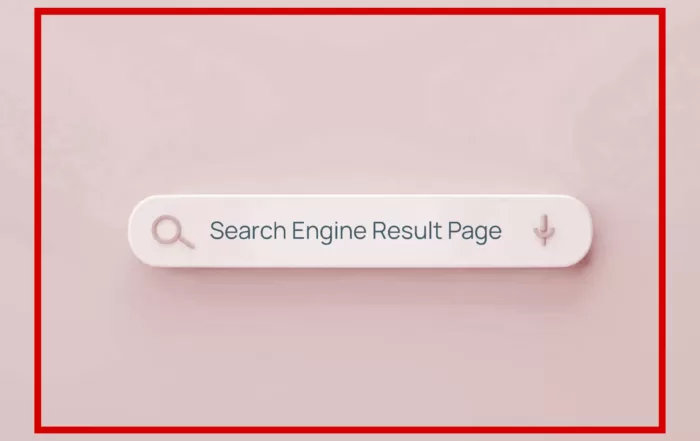It’s a fight of AI against humans
Can you trust everything you see? Can you believe everything you hear? More importantly, can you blindly accept everything an AI program recommends? I do not think so.
We are here to talk about just that today. Google recommendations have been around for quite some time. We have had our account specialists give us the only recommendation “please implement what you see on Google recommendations tab”. The big question remains, can you just trust it blindly?
To talk further about these recommendations, we will have to first understand the methodology in the first place.
Note : You might not see any recommendations if your ads recently started running
How does Google’s ad recommendation work?
The recommendations tab on the account takes into consideration the account’s historical performance, campaign settings and the market benchmarks to generate a set of recommendations that “could” improve your ad account’s performance.
The recommendations are mainly divided into 10 broad categories.
- Ads and extensions
- Automated campaigns
- Bidding and budgets
- Keywords and targeting
- Repairs
- Ad suggestions
- Download the Google Ads mobile app
- Proposed changes
- Scoring paused campaigns
- Related links
We will not be going through these in detail in this article. If you are new to this topic, you can read more about it here – https://support.google.com/google-ads/answer/3416396
While some recommendations are a part of the hygiene checklist, most of the others are derived from your data, spending and conversion patterns.
For example : “Remove blocking negatives” is a hygiene recommendation while “Remove non-serving keywords” are based on the data flow into the system.


The hygiene suggestions can mostly be accepted with little attention as these have low-risk associated with them. However, there are a few which we personally like to stay away from – enabling search partners on all campaigns, using search and display campaigns and a few more.
The ones that need utmost attention are the ones that are derived from data interpretation. Some of these recommendations are boost campaign budget to show at all times of the day, increase TCPA on the campaign to get more conversions, to boost enhanced CPC limits to rank higher, to utilise broad match keywords to have better keyword coverage and similar suggestions. Understanding the impact of this on the account is really important. Seek help if you are not sure of what an action does before applying it. It is to be noted that a higher score DOES NOT mean better results. That is just a gamified platform which wants you to achieve a 100% score based on what the algorithm wants you to do.
Most importantly, think before you set the account to ‘auto apply recommendations’ as not all the recommendations are of good value.
Before we conclude, here are few pros and cons of using Google’s Ad Recommendations.
| Pro of Googles’ Ad Recommendation | Cons of Googles’ Ad Recommendation |
|---|---|
|
|
Conclusion
Although these smart tools can help you save some bit of time. A wise person would certainly want to monitor these changes closely as not everything can favour the desired output. If you are still in doubt – talk to a digital marketing specialist before you click.
Get a personal consultation.
Call us today at +918197978138
A lot of clarity can be gained if we just talk to each other for 5mins.





